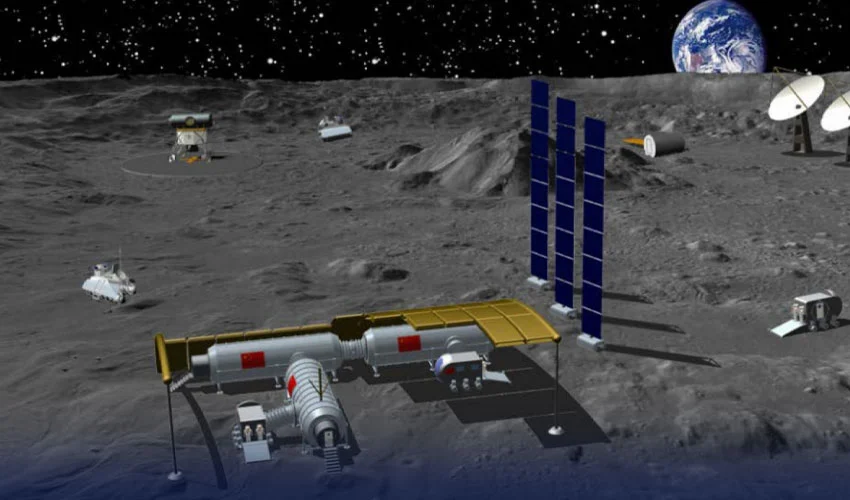Pakistan has agreed to work with China on a project to build a research station on the South Pole of the moon.
The two countries signed an agreement to cooperate on the project on Wednesday.
Caretaker Prime Minister Anwar ul Haq Kakar and Chinese Premier Li Qiang witnessed the signing of an initial cooperation agreement in Beijing on Wednesday.
China is aiming to become a major space power by 2030, and it has already secured cooperation from Russia, Venezuela, and South Africa.
China wants to land its astronauts on the moon by the end of this decade.
The timeline for building the research station coincides with NASA’s Artemis program which aims to put US astronauts back on the moon by December 2025.
Further, China is gearing up for its Cheng E6 lunar mission set to launch in the first half of 2024. What makes this mission even more noteworthy is the inclusion of a Pakistani satellite among its payload.
The China National Space Administration (CNSA) recently announced on social media platform Weibo that the Cheng E6 mission is on track for its moon-bound journey.
This mission is also promoting international cooperation by carrying payloads from several countries, including Pakistan, the European Space Agency (ESA), France, and Italy.
Among the scientific instruments onboard Cheng E6, French equipment will be used to test for radioactive gas.
The ESA’s Negative Ion Detector and Italy’s Valle Brett Radar System will also hitch a ride on this lunar adventure.
Of special significance is the inclusion of Pakistan’s CubeSat satellite, which will be dispatched to orbit the moon.


